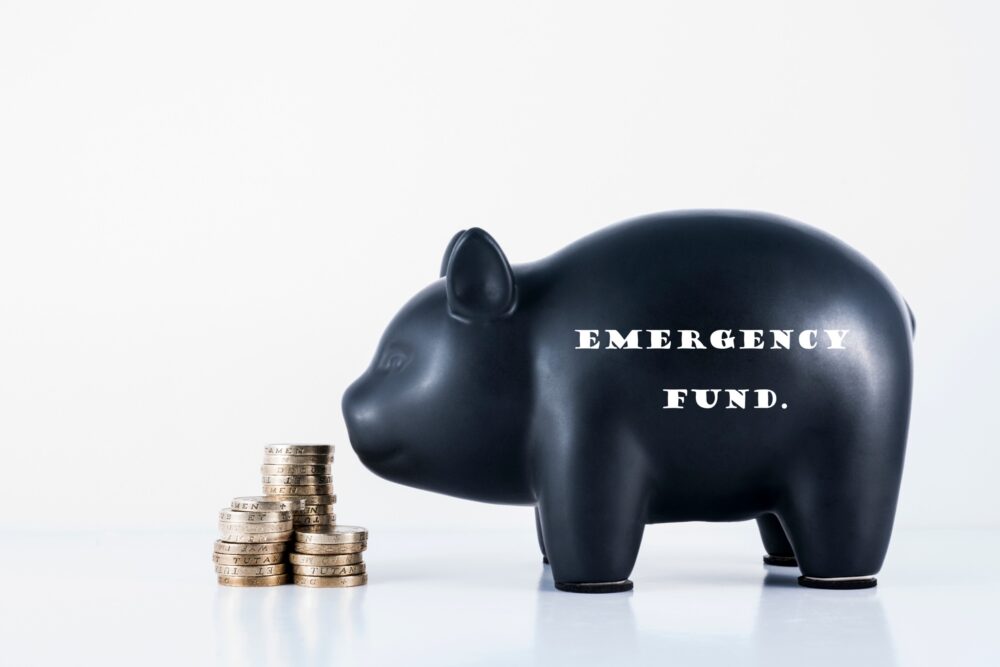
Good money habits can set you apart from your peers and pave the way for a more secure and prosperous future. Many people struggle with managing their finances effectively, often leading to stress, debt, and missed opportunities. By cultivating strong financial practices like budgeting and investing regularly, you can improve your own financial situation and set a positive example for those around you. Let’s delve into the thirteen signs that show you have better money habits compared to your friends.
1. You Create and Stick to a Budget

Creating a budget is the cornerstone of good financial management. Sticking to a spending plan that’s within your means puts you ahead of many who don’t have a clear picture of their finances. Budgeting helps you avoid unnecessary spending and ensures you have enough cash on hand for both essential everyday expenses and savings. The discipline required to formulate and follow a realistic budget shows your commitment to financial responsibility and long-term planning.
2. You Pay Off Credit Card Balances in Full

Paying off your credit card balances in full each month enables you to avoid costly interest charges and demonstrates that you have better money habits. This financial practice shows that you live within your means and manage your cash flow effectively. Many people carry balances and pay hefty interest, which can set them back financially. So your discipline in this area sets you apart from your peers.
3. You Regularly Save a Portion of Your Income

Saving a portion of your income regularly, whether it’s for retirement, a big purchase, or just general savings, indicates excellent financial discipline. By prioritizing savings, you ensure you have funds for future wants and needs like car repairs or vacations. Many people struggle with saving consistently, often living paycheck to paycheck. Your ability to delay gratification and set aside funds for a rainy day on a regular basis highlights your commitment to financial security.
4. You Have an Emergency Fund

Creating an emergency fund is a critical aspect of financial stability that shows you have better money habits than your peers. Experts suggest setting aside three to six months’ worth of living expenses in a separate bank account. If you’ve already done this, you’re well-prepared for unexpected situations like medical emergencies or job loss. Many people overlook this safety net, but having one can prevent financial stress and debt accumulation.
5. You Invest for the Future

Investing in stocks, bonds, or other financial instruments shows you’re thinking about long-term growth and compound interest. By investing, you’re putting your money to work for you, which can lead to greater financial rewards over time. This proactive approach to building wealth distinguishes you from those who might only rely on savings accounts that don’t yield much interest. Understanding and engaging in investments is a key sign of advanced financial understanding and better money habits.
6. You Track Your Net Worth

Tracking your net worth by regularly assessing your assets and liabilities provides a clear picture of your financial health. This habit helps you understand your progress towards financial goals and make informed decisions. Many people don’t have a clear understanding of their net worth, which can hinder their financial planning. Your diligence in tracking net worth demonstrates a comprehensive approach to managing your finances.
7. You Prioritize Paying Off High-Interest Debt

Focusing on paying off high-interest debt first like credit cards shows a strategic approach to debt management. Aggressively targeting these debts reduces the amount of interest paid over time, freeing up more money for other financial goals. This prioritization is crucial for improving overall financial health and avoiding debt traps. Many people simply make minimum payments on their credit cards and high-interest loans, extending their debt and increasing their costs. Avoiding this mistake shows that you have better money habits and are on the right track.
8. You Live Below Your Means

Consistently spending less than you earn is a fundamental principle of good money management. By living below your means, you create room in your budget for savings and investments, enhancing your financial security. Although this habit requires delayed gratification and a bit of self-denial, it often leads to greater financial stability and peace of mind in the long run. Many people struggle to live within their means and succumb to lifestyle inflation as their income increases, which can hinder their long-term wealth accumulation.
9. You Plan for Big Expenses

Saving and planning for big expenses like vacations or major home repairs shows foresight and responsibility. By setting aside funds in advance, you avoid the need to use credit or deplete emergency savings. This habit demonstrates a proactive approach to financial management and reduces stress associated with large expenditures. Proper planning distinguishes you from those who might resort to taking out loans to fund big purchases like buying a car, resulting in unnecessary interest costs.
10. You Have Clear Financial Goals

Setting clear financial goals, whether short-term or long-term, helps guide your financial decisions and actions. By having specific objectives, you can create actionable plans and measure your progress over time. Your sense of clarity and direction are essential for achieving financial success and avoiding aimless spending. Many people lack defined goals, leading to financial mismanagement and missed opportunities.
11. You Regularly Review and Adjust Your Financial Plan

Regularly reviewing and adjusting your financial plan ensures it remains aligned with your goals and circumstances. This positive habit helps you stay on track and adapt to changes in income, expenses, or life situations. Being proactive in managing your financial plan demonstrates flexibility and a commitment to continuous financial improvement. Many people set a plan and forget it for months or years, potentially causing them to miss out on opportunities to optimize their finances.
12. You Seek Financial Advice When Needed

Recognizing when you need professional financial advice and seeking it out shows wisdom and humility. Whether it’s consulting a financial planner or researching financial topics, getting informed guidance can enhance your financial decisions. This willingness to learn and seek help distinguishes you from those who might make uninformed choices. Seeking advice and taking a proactive approach to financial management is a sign of maturity and better money habits.
13. You Teach Others About Good Money Habits

Are you the person who’s always being asked for money management advice? Sharing your knowledge with friends and family indicates financial confidence and a desire to help others achieve monetary success. By educating loved ones, you reinforce your own money habits and contribute to an overall culture of financial literacy. Your generosity and leadership set you apart, showcasing your commitment to improving your own financial situation while empowering those around you. Teaching others is a sign of mastery and a deep understanding of sound financial practices.
Better Money Habits Set You Up for Success

Having better money habits than your peers sets a strong foundation for financial health and success. These positive financial behaviors reflect a combination of discipline, foresight, and responsibility, distinguishing you from many of your peers. Embracing and maintaining these habits, such as creating a budget and investing for the future, will serve you well in the long run. Compared to peers with poor financial discipline, you may experience greater financial stability, freedom, and peace of mind.
Read More
Boomers Have Better Money Habits Than Most-What They Can Teach You
10 Money Mistakes Your Parents Are Making That Is Putting Your Inheritance At Risk
Vicky Monroe is a freelance personal finance and lifestyle writer. When she’s not busy writing about her favorite money saving hacks or tinkering with her budget spreadsheets, she likes to travel, garden, and cook healthy vegetarian meals.
Comments